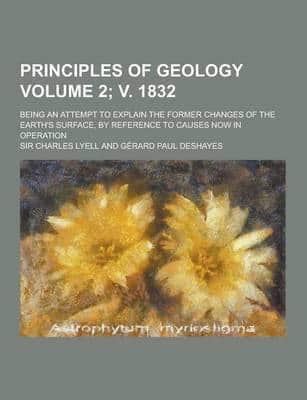Publisher's Synopsis
This historic book may have numerous typos and missing text. Purchasers can usually download a free scanned copy of the original book (without typos) from the publisher. Not indexed. Not illustrated. 1832 edition. Excerpt: ...now in action, and he will immediately perceive that, amidst the vicissitudes of the earth's surface, species cannot be immortal, but must perish one after the other, like the individuals which compose them. There is no possibility of escaping from this conclusion, without resorting to some hypothesis as violent as that of Lamarck, who imagined, as we have before seen, that species are each of them endowed with indefinite powers of modifying their organization, in conformity to the endless changes of circumstances to which they are exposed. Some of the effects which must attend every general alteration of climate are sufficiently peculiar to claim a separate consideration before concluding the present chapter. We have before stated that, during seasons of extraordinary severity, many northern birds, and, in some countries, many quadrupeds, migrate southwards. If these cold seasons were to become frequent, in consequence of a gradual and general refrigeration of the atmosphere, such migrations would be more and more regular, until, at length, many animals, now confined to the arctic regions, would become the tenants of the temperate zone; while the inhabitants of the latter would approach nearer to the equator. At the same time, many species previously established on high mountains, would begin to descend, in every latitude, towards the middle regions, and those which were confined to the flanks of mountains would make their way into the plains. Analogous changes would also take place in the vegetable kingdom. If, on the contrary, the heat of the atmosphere be on the increase, the plants and animals of low grounds would ascend to higher levels, the equatorial species would migrate into the temperate zone, and those of the temperate into...



























